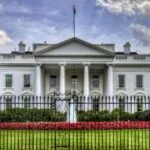The key rate of interest set by the Reserve Bank of New Zealand (RBNZ) was raised to 4.25% from 4.2 by 0.75 percentage points.
Since the rate, also known as the official cash rate, was implemented in 1999, that has been the highest increase.
It follows a period of time in which the nation’s annual inflation rate was 7.2% through the end of September.
New Zealand, like a large portion of the rest of the world, has suffered a substantial increase in the cost of living as the world economy recovers from the epidemic and the war in Ukraine has increased the price of petrol and food.
The country’s economy is expected to enter a downturn in September of next year, according to the RBNZ’s latest predictions. A crisis is typically thought to occur when the economy contracts for two consecutive quarters of three months.
According to the RBNZ “Because the New Zealand economy is starting from a position of very high inflation and acute labour shortages, an economic contraction is likely.”
“Trying to avoid an economic contraction by limiting any interest rate increases in the near term would likely lead to a longer period of high inflation. In turn, this would likely result in higher interest rates and a larger contraction eventually being required to bring inflation and employment back to a more sustainable path,” it stated.
The decision was praised by the bank ANZ’s analysts.
According to ANZ Research’s investor report “Hope is not a strategy. The RBNZ Monetary Policy Committee gets that, and deserves a pat on the back for facing the challenges head-on. If the facts change, they’ll change their minds. But right now, the fact is that high inflation is looking increasingly entrenched, and dithering would only make the problem worse.”
New Zealand’s Grant Robertson, the country’s Finance Minister, stated during a parliamentary session on Wednesday that the year 2023 will be a “year of reckoning” for the global economy.
Mr. Robertson continued, “Countries will either be in a recession or feel like they are.”
The New Zealand currency rose against the US dollar to a three-month high following the RBNZ interest rate decision before slightly declining.












